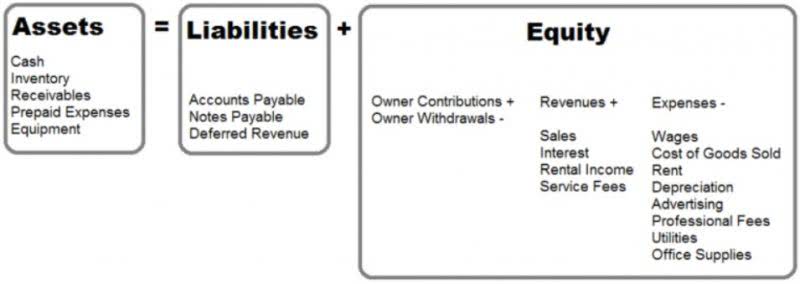
Personal property taxes are taxes imposed on your movable property. The tools, equipment, and vehicles that your business owns, as well as furniture you place in rental homes, might be subject to taxation. Like many aspects of business, your level of preparation influences your chances of success. Choosing real estate accounting the right accounting software will save you time, hassle and money as your business grows. Ensure you weigh up your options before you decide – it will make all the difference to your portfolio performance. If you manage client holdings or housing association properties, there’s a lot to take into account.
Accrual vs. Cash Accounting

Accurate analysis ensures that businesses can assess their financial performance effectively. It’s a vital aspect of successful real estate accounting that supports informed decision-making. Integrating with these systems is crucial for efficient real estate accounting. Accurate CRM integration drives efficiency and business optimization. Industry workshops offer insights into the latest real estate accounting practices.
Real Estate Accounting: Best Practices
- Understanding real estate accounting regulations is paramount for businesses in the industry.
- Invoices are customizable so you can manage multiple Airbnb property brands easily.
- This publication is not a substitute for such professional advice or services, nor should it be used as a basis for any decision or action that may affect your business.
- It incorporates principles of accounting, budgeting, and financial reporting specific to the real estate industry.
Additionally, accounting professionals develop revenue and expense reports, lease summaries, cash basis income statements, and other items relevant to real estate budgets. Real estate agents use many technologies to run their businesses and interact with clients. For example, marketing technology used by real estate agents include website builders, video creation tools and email marketing software. Bench is not real estate accounting software but it can be used in place of one for real estate professionals looking for an easy way to keep their books each month. The company offers assistance with quarterly tax preparation and filings, applying for loans, bookkeeping and even bookkeeping catch-up services.
Developers and Financial Planning
- Ultimately, accurate categorization is foundational for clear financial reporting and analysis.
- Training sessions offer insights into feedback collection techniques.
- Accurate software integration drives efficiency and business optimization.
- The newfound efficiency allowed Emily and our team to focus on more strategic tasks, such as financial analysis and planning, ultimately benefiting the agency’s bottom line.
- In fact, KPMG LLP was the first of the Big Four firms to organize itself along the same industry lines as clients.
- However, if you have a small real estate business and are comfortable with spreadsheet software, it may be a viable option.
- It aims to track, analyze, and report financial information to facilitate informed decision-making by property owners and investors.
Most of the best accounting software for real estate agents is available as a web-only solution, with the back-end deployed in the cloud for backup. This makes it easy for users to access their day to day financial data from any device on the go. Agents can also invoice, add expenses, or view important reports without having to log on to their desktop or laptop. Real estate accounting software helps agents save a lot of time and money while improving productivity levels. The goal is to provide a digital interface that performs most of your financial transactions. It’s also best to find a system that automates some of the most routine accounting chores like reconciliation and transaction matching.
Real Estate Specific Tax Issues
Real estate companies, from developers to property management firms, are in constant pursuit of growth. Accounting provides them with the tools to plan, strategize, and optimize. It aligns financial activities with property management goals, ensuring sustainable growth. Specialized systems are designed to scale with the business, handling more data, properties, and transactions.

Each brokerage charges its own commission structure and creates opportunities for real estate agents to negotiate their percentages, signing bonuses, and other earnings. Even if you’re just starting out, you can create processes that help you to scale—and to keep as much commission as you can. Real estate agents deal with hundreds of tasks throughout the property buying and selling process.

- Once you click “continue,” you will be brought to a third-party website.
- There are a few important areas to consider when planning for tax savings.
- Understanding the spectrum of users highlights the pervasive importance of real estate accounting in the industry.
- Bookkeeping in real estate primarily focuses on keeping accurate records of invoices, expenses, and payroll.
Real estate accounts are professionals who manage property-related financial activities. They ensure accurate tracking of transactions and compliance with financial regulations. Their expertise is crucial for the financial health of a real estate business. Accounting goes beyond bookkeeping by providing analysis, https://www.bookstime.com/ interpretation, and reporting of financial data. It involves preparing financial statements, analyzing profitability, calculating depreciation and amortization, and providing insights for strategic decision-making. Accounting helps you understand the bigger picture of your real estate business.

